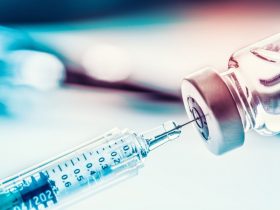Greater gains seen during treatment for parent-implemented early Social Interaction intervention started at 18 versus 27 months
By Elana Gotkine HealthDay Reporter
TUESDAY, April 25, 2023 (HealthDay News) — For toddlers with autism, an intensive, individualized intervention initiated at 18 versus 27 months leads to greater improvements, according to a study published online March 15 in Autism.
Whitney Guthrie, Ph.D., from the Children’s Hospital of Philadelphia, and colleagues examined the timing effect of the parent-implemented Early Social Interaction (ESI) model intervention using a complete crossover randomized controlled trial. Effects of Individual-ESI were compared to initiation at 18 or 27 months of age and were also compared to effects of less-intensive Group-ESI and an active control. Eighty-two toddlers with autism were included, who received nine months of Individual-ESI and nine months of Group-ESI with the timing and order randomized. Assessments were completed at baseline (18 months of age) and at the end of conditions 1 and 2 (27 and 36 months, respectively).
The researchers found greater gains during treatment reported for toddlers randomly assigned to Individual-ESI at 18 months versus 27 months in terms of receptive/expressive language, social communication, and daily living skills. For Group-ESI, this pattern was not observed, indicating that the effects of timing were specific to Individual-ESI.
“Results from this study underscore the importance of initiating treatment as early as possible, at least by 18 months,” the authors write. “However, early intervention is contingent upon early identification of toddlers who require these autism-specific services.”
Several authors disclosed involvement in developing scales and modules used for assessing autism; two authors own Autism Navigator.
Copyright © 2023 HealthDay. All rights reserved.







